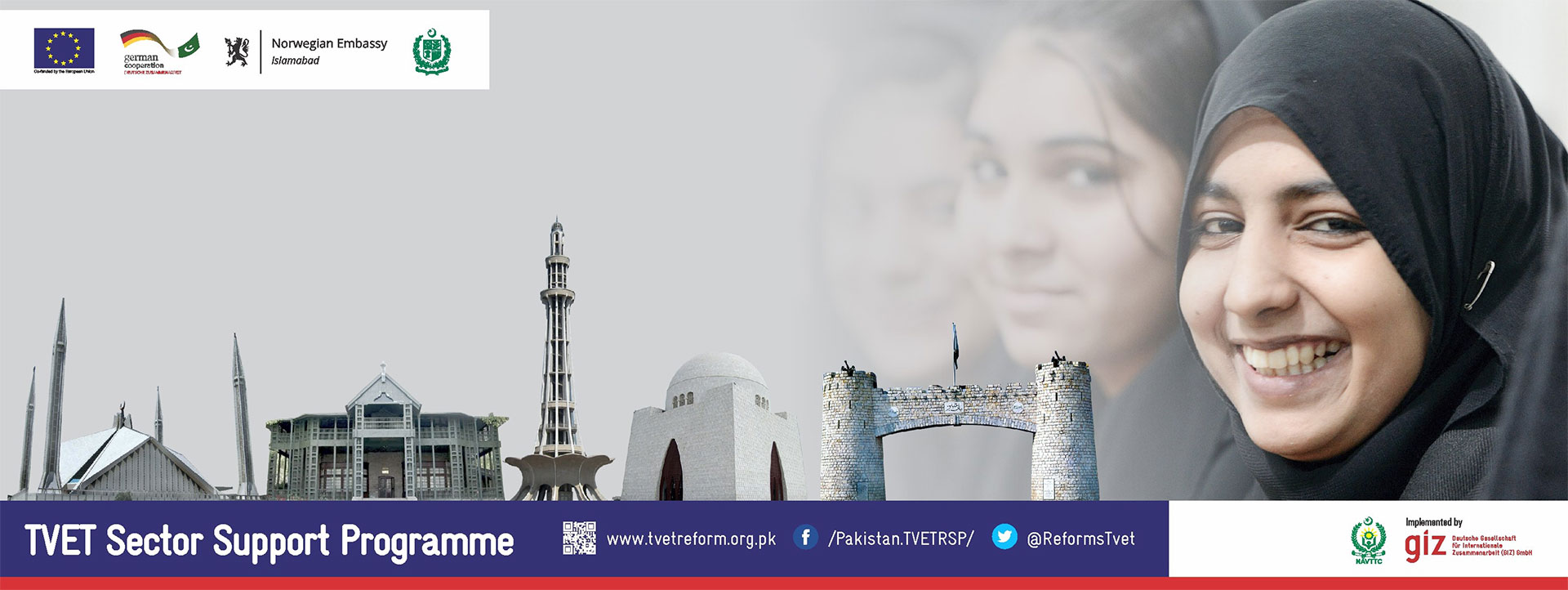
Islamabad, June 22, 2020: The National Vocational and Technical Training Commission has designed seven national vocational qualifications or training programmes based on the competency-based training techniques to meet the demand of skilled workforce in services sector.
The training programmes are designed according to the National Vocational Qualifications Framework (NVQF), which is an instrument to improve quality of vocational training and ensure participation of the industry in design and delivery of the vocational training. These courses have been designed in close collaboration between NAVTTC, the Technical Education and Vocational Authorities (TEVTAs) and representatives from the relevant private sector holders.
The NAVTTC has issued notifications of National Vocational Qualification Certificate level 2-4 in “Hand and Machine Embroidery”, Level-3 in Jewellery Electroplating and CAD-CAM, Level 3-5 in “Entrepreneurship”, and Level-5 Diplomas in “Electrical Technology”, “Electronic Technology”, “Retail and Merchandize Management” and “Printing and Publishing Technology”.
The new training programmes are demanded by the respective Business and Industry Associations (BIAs) from Sindh, Punjab, Khyber Pakhtunkhwa (KP) and Balochistan. Subsequently, the training providers across Pakistan will start the implementation of these qualifications from July 2020. The vocational qualification packages are consisted of competency standards, curricula, assessment packages and trainer and learner guides (TLGs).
Development of these qualifications is carrying out through a complete development of curriculum process called ‘DACUM’, which took place during the scenario of COVID-19, while taking all the representatives onboard through digital platforms. The process of development of these national vocational qualifications was supported by the TVET Sector Support Programme, which is assisting the Government of Pakistan in reforming the TVET sector since 2011. This Programme is supported by the European Union and the governments of the Germany and Norway and implement by the Deutsche Gesellschaft für Internationale Zusammenarbeit (GIZ) GmbH in collaboration with the NAVTTC, provincial and regional technical education and vocational training authorities (TEVTAs), Punjab Vocational Training Council (PVTC) and private sector organizations. Since 2011, the TVET Sector Support Programme has supported NAVTTC in development of 60 demand-driven national vocational qualifications in Phase-I which was from 2011 to 2016; while in the second phase, the programme is supporting NAVTTC to develop 72 new national vocational qualifications.
 Pakistan TVET REFORM Support Programme Technical and Vocational Education and Training (TVET) Reform support Programme
Pakistan TVET REFORM Support Programme Technical and Vocational Education and Training (TVET) Reform support Programme





